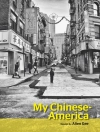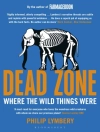One of the world’s most ruthless warriors, Chinggis Khan conquered nearly all of Asia in the twelfth and thirteenth centuries, transforming the scattered and impoverished Mongols into an exceptionally proud and powerful nation. In this riveting and thoroughly researched portrait, Japan’s celebrated epic novelist drives at the root of the khan’s great desires and insatiable appetite for supremacy.
Beginning with his birth in 1162, The Blue Wolf follows the crucial alliances that led to Chinggis Khan’s great campaigns in North China, Bukhara, and Samarkand, as well as the state of Khorazm. The khan was obsessed with his ancestry, not knowing whether he was the descendent of the blue wolf (mythical progenitor of the Mongols and the noble Borjigin line) or merely the bastard son of a Merkid tribesman. For Inoue Yasushi, Chinggis’s ancestral anxiety lies at the center of his relentless push for empire. He struggled with his paternity as intensely as he fought his battles, and his victories stood as proof that the brave warrior was a true Mongol.
The question of paternity also formed the largest wedge between Chinggis and his eldest son, Jochi, a boy born in captivity and of similarly questionable heritage. Hailed for its sophistication and rich imagining of a remote world, The Blue Wolf puts a human cast on a legendary force that changed Asia and the world.
Mục lục
Translator’s Note
Map
1. Earliest Years
2. The Merkid Massacre
3. Overlordship on the Mongolian Plateau
4. Temüjin Becomes Chinggis Khan
5. Attack on the Jin
6. Fall of the Jin Dynasty
7. The Destruction of Khorazm
8. Return to Mount Burqan
Author’s Afterword (1960)
Dramatis Personae
Giới thiệu về tác giả
Inoue Yasushi (1907-1991) received numerous awards for his writing, including the prestigious Akutagawa Prize and the Japan Art Academy Award, and he was nominated for the Nobel Prize for literature. His novels include such popular works as The Roof Tile of Tempyo, Lou-Lan, Wind and Waves, and Journey Beyond Samarkand.Joshua Fogel is Canada Research Chair and professor of history at York University in Toronto. He specializes in the history of Sino-Japanese relations and has taught at Harvard University and the University of California, Santa Barbara.












